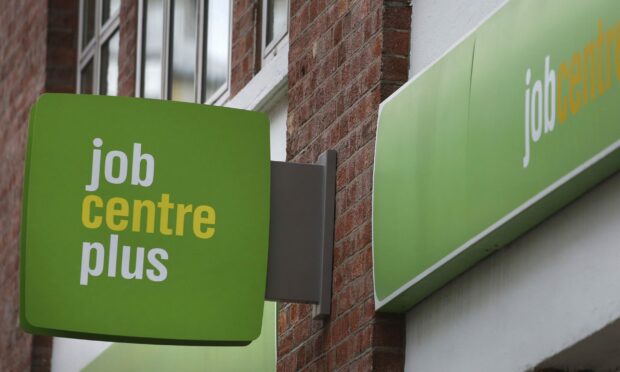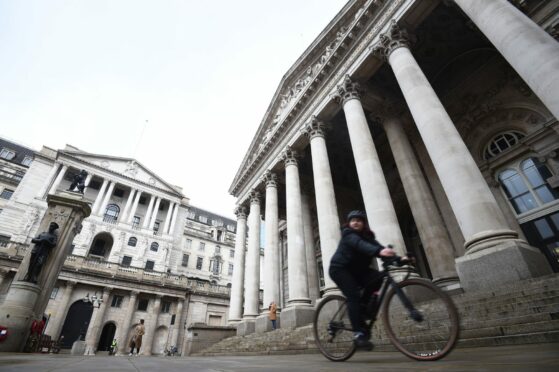Government must address the ‘vacancy paradox’ as unemployment falls but the number of job adverts are a record high, a leading business group has warned.
Kitty Ussher, chief economist at the Institute of Directors (IoD), said new figures on employment issued by the Office for National Statistics (ONS) meant it was now unlikely the end of the furlough scheme will cause the “spike in unemployment that was previously feared”.
The ONS as reported that the number of UK workers on company payrolls has surged by more than 120,000 above pre-pandemic levels after a record jump in September as vacancies also remained above a million for the second month running.
The jobs market rebound has sparked speculation that policymakers may look to hike interest rates sooner rather than later amid rampant inflation.
The latest official figures show a labour market getting back to rude health. Financial markets have been pricing in an increased chance that the Bank of England will hike rates even before the end of this year to cool inflation, with little in the rosy employment picture to hold it back.
Where are the skills?
Ms Ussher confirmed that unemployment is now on a “firm downward march” but warned that this highlighted a schism between the skills of the UK workforce and the needs of employers.
She said: “We are starting to see a vacancy paradox in the jobs market: record-high job adverts but still more people unemployed than there were before the pandemic.
“The answer appears to be that those people seeking work do not have the skills or availability that employers need.
“Businesses will be looking to the government to prioritise lifelong skills and retraining to help them find the teams they need to expand and grow.”
This was 122,000 higher than levels seen before before the pandemic struck in February 2020.
The data also showed another record quarterly leap in job vacancies, up by 1.1 million between July and September.
Britain’s recovery in the jobs market saw the rate of unemployment fall further to 4.5% between June and August, the ONS added.
Inflation is rife
Soaring prices of everything from gas and fuel to clothing and groceries has led to concerns among Bank policymakers over a worrying spiral of inflation as the supply chain crisis mounts.
Bank governor Andrew Bailey warned at the weekend over a potentially “very damaging” period of inflation for British consumers, having previously assured it was only a temporary blip.
The Bank has been watching the jobs market carefully, in particular what effect the ending of furlough may have.
But with vacancies close to matching the number of people left on furlough when the scheme came to a close last month, it is hoped the UK will avoid a sudden spike in redundancies.
Laith Khalaf, head of investment analysis at AJ Bell, said: “The Bank of England is expecting elevated inflation this winter, but the recent spike in gas and oil prices will test their resolve, as the increasing cost of these vital economic inputs will mean that inflation will be higher, and potentially longer lasting.
“The UK now looks firmly on the path to higher interest rates. The question is how quickly the central bank takes us there.”
Most economists see it as unlikely that the Bank will increase rates next month, though inflation may well force its hand quicker than initially expected.
Fix the shortages
James Martin, director of policy for the British Chambers of Commerce (BCC) said widening the number of roles that are facing shortages as a result of Brexit and the pandemic, which would loosen restrictions on immigration.
He said. “Expanding the Shortage Occupation List will help businesses access the skills they need when they can’t recruit locally in the shorter term, supporting them to create a truly high-wage and high-productivity economy in the longer-term.”
He added the most recent figures might not show the full effect of the end of the furlough scheme.
“Furlough ended in September, and the impact of that decision may not be fully picked up in the latest data,” he said.
“Skills mismatches are very likely to limit how many of those seeking jobs after furlough can move into available roles.”
High-skill, high-investment, high-productivity economy
Matthew Percival, CBI programme director for skills & inclusion, welcomed a government taskforce aimed at delving into the impact of labour shortages in the UK.
He said: “Companies have found hiring difficult this autumn and the official data is beginning to tell the same story, with the number of people on payroll exceeding pre-Covid highs and record vacancies.
“It’s welcome that Government has set up a new taskforce chaired by Sir David Lewis to advise on the impact of supply chain disruption and labour shortages on the recovery. Business and government working together is the best way to create the high-wage, high-skill, high-investment, high-productivity economy we all want to see.”
Darren Morgan, director of economic statistics at the ONS, said: “The jobs market has continued to recover from the effects of the coronavirus, with the number of employees on payroll in September now well exceeding pre-pandemic levels.
“Vacancies also reached a new one-month record in September, at nearly 1.2 million, with our latest estimates suggesting that all industries have at least as many jobs on offer now as before the onset of Covid-19.”



